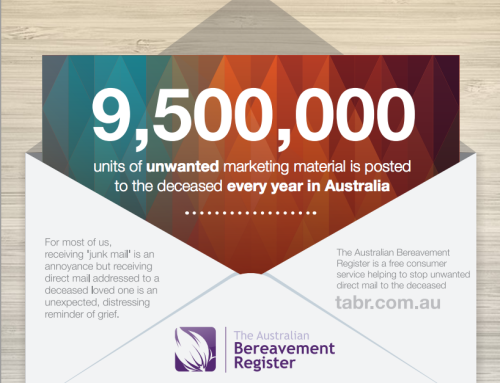Glenn Harrison discusses the issues around ‘dead letter’ campaigns.
Is your marketing team generating some of the unwanted 9.5 million pieces of direct mail addressed to the deceased costing $17 million to produce each year?
With the new ADMA code highlighting that direct mailers must ensure data to be properly sourced, permissioned and cleaned, now is the optimum time to use data suppression file products in your annual data audit before the peak Christmas and New Year marketing season.
Using data suppression file products that remove the deceased is a cost-effective way to increase reputation, marketing ROI and revenue for your organisation.
On average a deceased Australian is sent 68 pieces of direct mail in the first year after death.
Unfortunately, charity marketers are currently vulnerable in this space, being responsible for around 14% of the volume of deceased direct mail, equating to 1,425,000 items per annum.
At an average mail pack cost of two dollars, charities are wasting $2.85 million every year on direct mail that causes distress and reputation damage for a sector where every dollar really does matter.
As we all know, 60% of charities use premium direct mail packages pre-Christmas. This kind of mail causes a great deal of distress especially when you consider the type of straplines employed at this time of year… “Put a smile on everyone’s face this Christmas,” “You’re pre-approved” or “We need your support this Christmas!”
The massive environmental impact of these ‘dead letters’ is also a concern.
Planet Ark’s corporate development and marketing manager, Freya Paterson, says: “On average, each tonne of paper removed from commercial correspondence saves 18 trees, 167,500 litres of water and 3,300 kg of greenhouse gas emissions.
“For direct mail marketers and fundraisers, any data that can help you refine your database is incredibly valuable.”
We strongly recommend that all of our clients to undertake a data audit at least once a year. Before sending out any marketing communications, an organisation should adopt the latest ADMA best practice advice and screen a mailing list.
Glenn Harrison is MD of Conexum Data Management Services, which manages The Australian Bereavement Register.
*This article first appeared in Marketing Magazine







